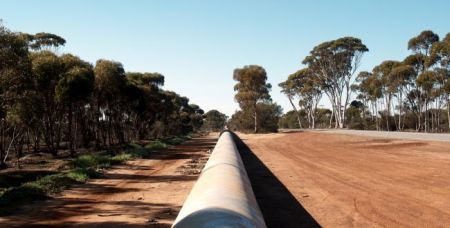African nations are grappling with old and new challenges in oil products supply ranging from price subsidies, import and distribution logistics, the maintenance of existing refineries and the construction of new ones, delegates at a joint Platts and Reuters forum held in Johannesburg said the week ended January 17.
Countries including Senegal, Ivory Coast, Gabon, Angola and Nigeria are considering either the modernization of their existing refineries or the building of new ones to meet growing fuel consumption.
Africa has experienced some of the largest oil demand gains globally in recent years.
But the continent does not produce enough refined products to meet demand, resulting in imports from either the US, Europe, the Middle East or the Far East, according to traders and industry sources.
West Africa pulled in growing volumes of gasoil and gasoline last year, helping to support price differentials and refiners' margins globally.
Nigeria and Angola, Africa's two largest crude producers, are both considering the construction of new refineries over the coming years.
Nigeria's project for a new 400,000 b/d refinery has been driven by Aliko Dangote, Africa's richest man and owner of a large commodities business.
The country currently operates four refineries, but these do not work at full capacity because of poor maintenance.
Workers at the plants threatened to go on strike this month after the government mentioned their possible privatization. Nigeria later said that the plants would remain in public hands.
Both the January and February export programs for Bonny Light and Escravos crude saw some volume additions last week, which some traders attributed to a shutdown of the refineries, but this has not been confirmed.
In Angola, Sonangol has started work on a new 200,000 b/d refinery, the latest such project to be launched.
But smaller modernization and construction projects are also likely to go ahead in Senegal, Cameroon, Ivory Coast and Gabon in the near future.
Cameroon's Limbe is currently undergoing extensive improvement works that will enable it to double its capacity by 2016-17.
There is a project to expand Senegal's 27,000 b/d Dakar plant owned by Societe Africaine de Raffinage, as well as the 64,000 b/d plant in Abidjan, in Ivory Coast, and a new refinery could be built in Gabon.
All three projects are subject to further discussions with investors and the government of each country, sources said.
Retail price subsidies firmly in place
Many African countries have large subsidy programs in place to insulate their populations from the effect of high global oil prices.
Delegates said the subsidies create many unwanted effects, from increased smuggling between countries with lower retail prices (and larger subsidies) and those with higher ones, and higher-than-expected demand gains.
The subsidies have incentivized higher consumption than would normally occur, but the countries' import and distribution logistics have not always been able to keep up with demand, sources said.
In Nigeria, which is often seen as the bellwether of anything to do with oil in West Africa, the government of Goodluck Jonathan backed down from a plan to slash down subsidies in 2012 after protests erupted in the streets.
A delegate said that the key was to phase subsidies out progressively over several years to ease the pain for consumers.
Senegal has been seen as a model to follow in the region as it started getting rid of most of its subsidies in 2007.
But even in Senegal, the government does not always fully reflect global crude price rises in the final retail price of finished products, a source said.
Delegates also said logistics remained a challenge in a continent that has not always had adequate investment in oil infrastructure.
Ports in certain countries, such as Congo Brazzaville or the Democratic Republic of Congo, are not deep enough to accommodate large tankers. This means importers often have to pay a higher premium to attract imports.
In Chad, where a new refinery was opened in 2011, the 20,000 b/d N'Djamena plant had to be shut recently because of a lack of export pipelines.
The refinery's storage tanks are full, said a source.
"They built the refinery before thinking about the pipelines around it...the result is that [Chad is still importing from Cameroon]. The refinery will stay closed for at least two months," added the source.
In Niger, further west, operations at the newly-constructed 20,000 b/d Zinder refinery have also been plagued by a lack of water, a key element in certain refinery processes, sources said.
Delegates said African governments were closely watching the construction of further refining capacity over the world as this could make some projects in Africa unprofitable.
Asia, in particular China and India, and the Middle East have had large refinery capacity additions in recent years.
These are likely to continue over the next few years, even if in some other regions, such as Europe, capacity is falling due to low margins.
Source: Platts


